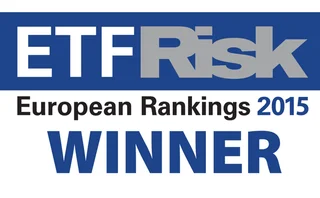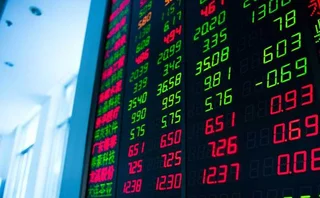
Rainy day funds
Exchange-traded funds (ETFs) have continued to gain traction in South Africa despite roiling markets. As a result, local ETF providers are extending their reach to new investors and asset classes - with some even looking to introduce exchange-traded notes. By John Ferry

Last year may have been a dismal time for investors in many asset classes, but for providers of exchange-traded funds (ETFs) there were a few hints of sunshine amid the doom and gloom. In fact, the year provided indications the ETF business will remain healthy in the long term.
On a global basis, ETFs were one of the few products to see net inflows in 2008, with net sales of $188 billion, according to New York-based research firm Strategic Insight. By contrast, mutual funds saw redemptions of $257 billion through the end of October, the company reports.
There is no doubt plummeting asset prices have taken their toll on ETF investors. Global assets under management (AUM) fell 11% to $711 million last year, according to San Francisco-based Barclays Global Investors (BGI). However, this compares favourably with a 43% drop in the MSCI World Index during the same period. And, despite the turmoil, the creation of new ETFs remains at a healthy level. The number of ETFs listed globally rose by 36% last year, with 472 new products launched across the world, says BGI.
It is a similar story in South Africa, where the sector has continued to enjoy steady growth despite a 26.57% drop in the FTSE/Johannesburg Stock Exchange (JSE) All-Share Index over 2008. At the beginning of 2009, there were 21 ETFs listed in the South African market - up from 13 in early 2008. Around R4.5 billion ($450 million) of new ETF shares were created by product providers in 2008, representing a 30% expansion of the local market during the year, according to South African ETF provider Satrix Managers. Total industry AUM, which was at R13.4 billion at the end of 2007, rose to R16.5 billion at the end of last year, spread across the country's six local ETF providers.
Given this continued growth, it is not surprising that further offerings are in the works. After changing the approval process for new ETFs, the country's Financial Services Board (FSB) has a backlog of new ETF applications to clear, say market participants. As this becomes unplugged, a steady stream of new ETF products is expected to emerge in 2009.
"It's always been fairly difficult to get the passive investment business going in South Africa, but I think ETFs are starting to change that," says Mike Brown, Johannesburg-based general manager of Satrix.
South African investors have traditionally preferred to place their money in actively managed funds. Even before the onset of the global financial crisis, many of the country's institutional investors were reluctant to use ETFs, says Nerina Visser, head of beta solutions at Nedbank Capital in Johannesburg. "A lot of funds were relatively loath to put large proportions of their money into passive ETFs, given the heavy-weighting towards the resources sector we have in our headline equity market indexes. That's typically too high a risk for pension funds."
But renewed scrutiny over costs - not to mention the underperformance of many actively managed funds - could lead to a groundswell of interest, product providers believe. Additionally, ETFs offer daily liquidity on an exchange, as well as full transparency on the underlying assets - both considered to be attractive in the wake of the credit crunch. For these reasons, South Africa's ETF providers anticipate further growth and have been working to expand their product lines.
Among the innovations that have recently appeared in the market are fixed- income ETFs. In October 2008, Investec launched the first South African Treasury bond ETF, called the Zshares Govi, which tracks eight long-term government bonds. It is expected to be the first of many bond-based ETFs to hit the market, says Brown of Satrix.
Local bond ETFs
Indeed, a number of rival providers are gearing up with fixed-income offerings of their own. Rand Merchant Bank (RMB), for example, is planning to launch a local bond ETF in the near future, says Leonard Jordaan, head of ETF sales and structuring at RMB in Johannesburg. He is coy about what the product will look like, but says it will be "totally different" from Investec's government bond ETF.
Absa Capital is likewise hopeful of bringing a bond ETF to market this year, as well as ETFs based on ethical investment and equity fundamentals.
"In the next few months, we will be listing three new sector-based ETFs focused on fundamental indexation, and will also be looking at ethical investing," says Vladimir Nedeljkovic, head of ETF and index products at Absa Capital in Johannesburg.
Ethical investing is one area in which Absa Capital has already been active. Its NewSA empowerment ETF, which tracks the performance of a modified FTSE/JSE Top 40 equity index, was launched last December. Within the modified index, the weightings of various stocks have been adjusted to reflect their so-called empowerment status, as defined by the government's Code of Good Practice on Black Economic Empowerment.
Nedeljkovic thinks ideas such as these can prove compelling for investors, despite poor results in the broader equity market. "In the current circumstances people are avoiding equities, but there is demand for products that offer some sort of diversification, and I think investors are prepared to look at a particular story," he asserts.
Stock-picking strategies based on equity fundamentals may also be an area that continues to receive investor attention. Both Absa Capital and Satrix operate ETFs based on an index produced by California-based Research Affiliates, named the Research Affiliates Fundamental Index (Rafi). Its South African index selects the country's top 40 stocks on the basis of certain performance figures including sales, cashflow, book price and dividends. A composite value is assigned to each company by taking the average weighting of each fundamental measure. The companies are then ranked in descending order of their fundamental values, with the weights in the indexes set proportional to them. Satrix's product is called the Rafi 40, while Absa Capital's version is called the eRafi. In the latter offering, the index is further adapted for the South African market by screening for quality of earnings by analysing net operating assets, while watching out for financial distress via a firm's debt coverage ratio. The indexes are a far better predictor of future outperformance than simple market capitalisation, which gives too much credence to over-valued companies, proponents say. By not following the capitalisation-weighted market, the eRafi ETF should help avoid share price bubbles, Nedeljkovic claims.
Currently, the biggest ETF on the South African market in terms of AUM is Absa's NewGold fund, which tracks the spot price of gold. Its AUM increased from around R6.3 billion at the beginning of 2008 to R7.6 billion at the beginning of 2009. But exchange controls are likely to impede the extension of ETFs to other commodities, since most are traded internationally in US dollars, market participants say.
A different approach
Not all product providers are focused on giving investors access to esoteric underlying indexes and asset classes, however. Deutsche Bank currently provides access to some of the largest benchmark equity indexes outside the country, such as the Dow Jones Eurostoxx 50, the MSCI USA Index and the MSCI World Index. As such, it is focusing on increasing the penetration of broad-based index products among existing investors.
Roger Koep, London-based head of investment products for South Africa at Deutsche Bank, believes there is still much to be achieved in enticing investor interest in established equity benchmarks. "We still believe most flow will go to major benchmark indexes. There are gaps that can be filled," he says.
Elsewhere, Nedbank Capital has yet to launch its ETF platform, but the bank intends to target institutional investors including pension funds and other liability-driven investors. The strategy will be to tailor products to suit the needs of individual clients, explains Visser. "We want to construct custom indexes that are either consistent with the required payout profiles of these funds, or that can offer the risk/return ratio the funds require."
With the FSB currently battling a backlog in applications for new ETFs, Visser is unable to specify when the products will be launched - although in light of the recent performance of South African equities, this delay might not be a bad thing, she asserts. "We've been delayed from the regulatory side by listing our first ETF, and we've been saying internally that it has been a bit of a blessing in disguise. If we were launching today, we would be launching at a better level than three months ago."
Once implemented, Nedbank Capital hopes its alternative strategy will prove more effective than going head-to-head with existing market players. "We can add more value by offering alternative ETFs. The market is relatively small in South Africa, and it doesn't make business sense to go into direct competition with what's already out there," says Visser.
Meanwhile, the success of ETFs is spurring product development in other areas. In a first for the South African market, Absa Capital says it plans to launch a series of exchange-traded notes (ETNs) over the next year. "We hope to bring some ETN products to market around the middle of this year," confirms Nedeljkovic.
ETNs are senior unsecured debt securities of an issuer, designed to track a specified index and traded on an exchange. Unlike ETFs, investors do not own a share of the underlying assets. Instead, the issuer promises to pay the index performance minus fees. This eliminates tracking error - a problem that arises with ETFs due to a deviation between the performance of a fund's underlying assets and the benchmark it is supposed to track.
Credit risk exposure
However, while avoiding potential tracking errors, ETN investors are exposed to the credit risk of the issuer. Specifically, if the issuing bank defaults, the investor would lose his or her investment, unlike ETF investors who would have recourse to the underlying assets held within the fund.
While the collapse of a dealer was once thought to be a slim prospect, the decision by Lehman Brothers to file for Chapter 11 bankruptcy protection on September 15 last year means this has become a very real concern for investors - causing some to shy away from the ETN market.
Notwithstanding this, South African financial institutions have largely escaped the huge subprime losses that have plagued banks in the US and Europe. And Nedeljkovic stresses investors should not be worried about credit risk on Absa Capital's proposed ETNs. Nonetheless, others argue counterparty credit issues may weigh on the minds of investors in the current environment.
"There are advantages to banks in structuring ETNs," says RMB's Jordaan. "But the problem is that the investor is taking the bank's risk when they buy those things."
Only users who have a paid subscription or are part of a corporate subscription are able to print or copy content.
To access these options, along with all other subscription benefits, please contact info@risk.net or view our subscription options here: http://subscriptions.risk.net/subscribe
You are currently unable to print this content. Please contact info@risk.net to find out more.
You are currently unable to copy this content. Please contact info@risk.net to find out more.
Copyright Infopro Digital Limited. All rights reserved.
As outlined in our terms and conditions, https://www.infopro-digital.com/terms-and-conditions/subscriptions/ (point 2.4), printing is limited to a single copy.
If you would like to purchase additional rights please email info@risk.net
Copyright Infopro Digital Limited. All rights reserved.
You may share this content using our article tools. As outlined in our terms and conditions, https://www.infopro-digital.com/terms-and-conditions/subscriptions/ (clause 2.4), an Authorised User may only make one copy of the materials for their own personal use. You must also comply with the restrictions in clause 2.5.
If you would like to purchase additional rights please email info@risk.net
More on Exchange-traded products
Realising the China opportunity
Webinar: HKEX
One size does not fit all: Smart beta explained
Sponsored feature: WisdomTree Europe
ETF Risk European Rankings 2015: ETF trading platform for institutional investors
Sponsored feature: Tradeweb
ETFs – Transforming the investment landscape in Asia
Sponsored survey analysis: Deutsche Asset & Wealth Management
Flood of oil ETF investors reshaping market, analysts say
'Massive' inflows cushioned oil price drop in early 2015, but could easily reverse
Currency-hedged ETF surge prompts hedging concerns
Eurozone QE programme prompts wave of investor interest
Currency-hedged ETF inflows boom
Investor interest sparks race to construct new products
Shanghai ETF option volatility spikes on China market fears
A crackdown on margin financing strengthens bearish sentiment







